- Philip Norman’s “letter” to Paul - May 2, 2016
- The Jets and The Beatles - April 25, 2016
- Lennon and McCartney On The Tonight Show, 1968 - April 20, 2016

Jenny Boyd with George Harrison
I was surfing the internet yesterday and came across an interesting story about Patti Boyd’s sister and ex-wife of Mick Fleetwood, Jenny Boyd.
After leaving her modelling career, Boyd attended UCLA and obtained her Ph.D in psychology in the late `80’s. Her Ph.D dissertation about the origins of creativity was published in 1992 as Musicians in Tune and again in 2014 as an expanded version entitled It’s Not Only Rock ’N’ Roll: Iconic Musicians Reveal The Source of Their Creativity. Here’s the description from Amazon.
Psychologist Jenny Boyd has probed the minds and souls of these artists and has delved into the drive to create, the importance of nurturing creativity, the role of unconscious influences, and the effects of chemicals and drugs on the creative process. Music legends who contributed exclusive interviews include Rosanne Cash, Eric Clapton, David Crosby, Mick Fleetwood, George Harrison, John Lee Hooker, Branford Marsalis, Stevie Nicks, Bonnie Raitt, Ravi Shankar, Ringo Starr, Ice-T, and Warren Zevon. With candid photographs and in-depth analysis of what makes great musicians tick, this will be of interest to any musician or music fan.


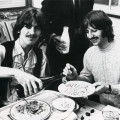


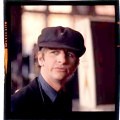
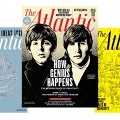
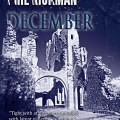
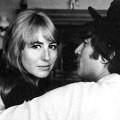
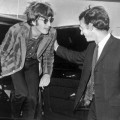
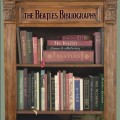
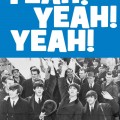
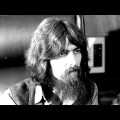
It’s always fun to hear what creative people say about their process.
In his essay “How I Create” Robert Benchley had this to say:
Very often I must wait weeks and weeks for what you call “inspiration.” In the meantime I must sit with my quill pen poised in the air over a sheet of foolscap, in case the divine spark should come like a lightning bolt and knock me off my chair on to my head. (This has happened more than once.) . . .
Sometimes, while in the throes of creative work, I get out of bed in the morning, look at my writing desk piled high with old bills, old gloves, and empty ginger-ale bottles, and go right back to bed again. The next thing I know it is night once more, and time for the Sand Man to come around. (We have a Sand Man who comes twice a day, which makes it very convenient. We give him five dollars at Christmas.)
I haven’t read the book, so I wonder what the artists she interviewed had to say about the marriage of creativity to commerce. All successful musicians begin their careers as enthusiastic amateurs and then end up signing contracts and facing legal obligations to record albums on a deadline.
@Sam, thanks for reminding me why I love Robert Benchley. The rest of are simply napping in the body-dent of that genius.
What a find! Thanks for bringing this to my attention.
What I find most mysterious about the Beatles’ creativity (aside from the genius songwriting) is what they did with their instruments. I’m a non-musician – I can form an “A” “G” “D” and “E” chord on my ukulele, but lack the courage to sing and play for anyone other than my cat. I have no idea what “Pentatonic” or “chord inversion” or “minor passing tone pattern” means. Because of my severely amateur status, when I watch footage of the Beatles performing music, it’s like watching a magician perform card tricks. There’s something beautiful about the way they move their hands over their guitars. George, especially, when he’d gracefully form chords up and down his fretboard; it’s like watching a classical virtuoso.
Recently, I was reading an article about guitar technique, and saw this querulous reader comment, by someone named martinmocha (I’ve emphasized the part that astounded me):
————————————–
“This obsession with Stairway to Heaven is not only pathetic but displays a total lack of guitar historical sense and the many genres especially jazz. Stairway is such a simple common minor, passing tone pattern that it’s routine within jazz or even some pop circles, it amazes me how easily impressed rock or blues players are by this banal guitar passage.
Christ, the Beatles even used a similar minor passing tone sequence as heard in tunes like Taste of Honey, Michelle and others. George Harrison, certainly not known for being a flashy guitar hero was none the less heads above many players in knowledge as demonstrated by his chord inversions, riffs and solos during the Beatles cover of Til There Was You yet don’t see players chomping at the bit to learn that one…..its an idictment of what passes for great, cool or guitar worthy:-)
JImmy Page, who is, if truth be told, was never more than the Poor Man’s Clapton (and Beck rip off artist) but because he’s been so expertly hyped by the media over the years as a “guitar hero”, it, like any form of propaganda like the Hendrix Mythos, has completely ensorcelled the guitar playing, cud chewing cattle of America……guess they must all watch Fox(ed) News”
————————————–
I guess his comment astounded me because I’m used to guitar players being dismissive of the Beatles’ musicianship. I always see comments like “Beatle songs are easy; anyone can play them!” Well, I can’t. I couldn’t play “Blackbird” if you put a gun to my head. And even after watching someone on youtube patiently demonstrate the chord progressions in “Across The Universe” I still feel like I’m watching Ricky Jay do card manipulation.
Any musicians in the heydullblog commentariat?
A non-musician here, I’m afraid (unless you count my plonking out “Camptown Races” when I was 8 as musicianly, 😉 ) but I also wondered about Stairway to Heaven and why on earth it received all that great press, particularly Page’s lead guitar. My reaction then, as now, is meh.
can you delete that it was not that vid I wanted to share.was different. I wish there was a preview so I would not make mistakes like this
Done. (Although it kind of intrigued me. 😉 )
Extra points for using the word “ensorcelled”, right?
Bit late to the discussion but I’m a piano player (primary instrument), guitarist (very secondary instrument) and songwriter, and the more I analyse the Beatles’ music the more frightening they become – especially seeing as none of them knew music theory. Even their very earliest songs use surprising chords (listen to what’s going on under ‘woh!’ in “I Saw Her Standing There”. Maybe there’s an Elvis song out there that does something similar but I seriously doubt it). By the time of Hard Day’s Night they’re changing key signature more or less constantly. Listen to “If I Fell” – even this “simple” song uses an insane chord sequence in the intro (‘promise to be true’) and modulates to a new key in the bridge (‘don’t hurt my pride like HER!’). By the mid-to-late albums they’re changing key several times per song, and – especially in John’s case – throwing in difficult time signatures as well: She Said She Said, Happiness Is a Warm Gun and Good Morning Good Morning are all extremely irregular songs. GMGM changes time signature practically every bar: just try to count along! Meanwhile, I Am the Walrus has so many chords, shifting in such nonstandard ways, that I’m not sure it can even be said to have a key.
As a piano player I can work most Beatles songs out, barring the odd head-scratcher like Me and My Monkey – what is the guitar DOING in that one? – but I wouldn’t even go near the majority of their catalogue on guitar. Much too difficult. Among their peers, they’re only really challenged in complexity by the Kinks, Hendrix and the Beach Boys (thanks to Brian Wilson’s jazz background the Boys win this one). The Stones, The Who, Dylan and the Doors don’t even come close.
Guitarists look down on Beatles songs because the guys couldn’t shred, but I’m much more interested in compositional sophistication (it’s a lot harder to do and more satisfying to hear), and in this they wipe the floor with Led Zep, Deep Purple, Cream et al. Obviously prog rockers can both shred and compose, but then we get to the problem of esoteric vs. populist – is it worse to write a song that mixes complexity with catchiness, or better? The fact that I’m posting on this blog and not a Yes fansite should tell you my answer.
The ultimate genius of the Beatles was their ability to bring complexity, classical values, Tin Pan Alley, folk, blues, “world” music and the avant-garde under the same pop roof. All those unusual chord changes, weird time signatures, modulations etc. are bubbling under the surface of those irresistible, life-affirming pop melodies. A lot of rock musicians just can’t see past the melodies. The Beatles were masters of sleight of hand, and that’s why their songs come across as magic tricks. That’s what they are.
But is this the best Stairway To Heaven?
https://www.youtube.com/watch?v=3WfoccRna6I
Justin, I agree completely about the Beatles & chords. I think their chord changes were so magical because (unlike many of their peers) they also listened to old 1920s & ’30s music.
Here’s an example of some impressive chord changes Paul may have heard in his formative years:
https://www.youtube.com/watch?v=FXQRi3jiIvE
Justin and Sam, I find this question of where the Beatles got their ideas for chord changes and changes in key from fascinating. And Sam, I agree with you about the influence of 20s-40s music on the Beatles, especially on Paul. I think part of the Beatles’ success comes from their willingness to embrace unusual and beautiful sounds no matter where they came from. Girl groups, country and western, music hall, whatever — it all went into the mix. The sheer variety of what they listened to and loved is all over what they created.
.
And Justin, I’m with you on prog rock. Most of it bores me — technical proficiency isn’t worth much, in my opinion, unless it allows you to do something that communicates powerfully; and prog rock hardly ever does, at least for me. Thanks for commenting; it’s great to hear from a musician about the Beatles’ work. If you’re interested in doing a guest post, please let us know!
I had no idea people were doing that kind of thing in 1928 Sam – wow. The intro alone is worth the price of admission.
.
Even John admitted that Paul’s songs had more chords in them. I think Paul was more likely to write songs that sound classically beautiful, with one or two strange chords thrown in to keep you guessing (that ‘woh’ in “I Saw Her Standing There”, ‘I don’t know why you say good-BYE I say hello’, ‘Blackbird FLY’, ‘All her words of kindness linger ON when she no longer needs you’, ‘every head he’s had the pleasure to KNOW’, and so on and so on). His lack of music education means that he must have simply intuited the “right” way to do things, as well as knowing how and when to break the rules. Astonishing.
.
John preferred to write songs where the chord progression is weird all the way through, with a melody so cleverly written that the song manages to be catchy and satisfying anyway (“Strawberry Fields”, “Glass Onion”, “Sexy Sadie”, “Happiness…Gun”, “Dig a Pony”…). Time and again he pushes the rules of pop as far as they can go without fully breaking them and spilling over into directionless experimentalism. Equally astonishing.
.
The final astonishing thing is that George Martin complemented both styles equally well: he created dazzling impressionistic soundscapes for John, whereas he and Paul collaborated on elaborate classical arrangements that would occasionally break the rules. There’s that great story where Martin tells Paul that his idea for the cello line in the second bridge is very “un-string quartet”. Of course Paul gets his way, and now we can enjoy that bluesy line that pops up after the second ‘she wouldn’t say’.
.
The George Harrison post is coming to a theatre near you soon Nancy 🙂 I’d love to write a post some day analysing the Beatles’ music in the style of Howard Goodall or Ian MacDonald. It’d need a good angle though.
The Biltmore Trio’s “Garden In The Rain” is sort of a prehistoric “Here Comes The Sun KIng” and “If I Fell In Love With You” mashup, in my opinion. The falsetto voices, the lovely guitar chords, etc.
.
In Brian Epstein’s book, there is a moment early in the Beatles’ career when he can’t get any record companies interested in them. Lennon says “Right. Try Pye.”
.
Pye Records was the low rent label where rock and rollers went to die. Imagine the Beatles on Pye? No George Martin, no Geoff, no Glyn Johns. John & Paul would still have their songwriting talent, but no encouragement or support for anything beyond hastily-recorded pop songs. Maybe the Pye people would have put a cocktail lounge group behind “Yesterday” (budget permitting).
I don’t know nearly as much about pre-Beatles music as you Sam, and I’m not up on the merits of different record labels either, what was the story with Pye? All I know about them is that they housed the Kinks – in fact I remember reading a quote from one of the Davies brothers where they said they loved being with them because they never interfered with anything. Who else did they represent?
From what I understand, it was a budget label. Think “K-Tel” records in the USA.
.
From wikipedia:
The company entered the budget-priced album market in 1957, reissuing older Pye material on Pye Golden Guinea Records, priced at a guinea (one pound and one shilling).
.
According to Brian Epstein’s autobiography, it was the label of last resort. He only considered it after a string of rejections from other labels.
.
https://en.wikipedia.org/wiki/Pye_Records
Paul had a better ear for where the music should go. John didn’t and because of that found more interesting places to go. Between the two of them this made some pretty interesting songs.
All guitarists who know their stuff know George is the ‘guitarists guitarist’. The right note at the right time in the right place.
And in respect of the quote ‘Jimmy Page poor mans Clapton’; utter tosh. Sit and watch The Song Remains the Same live concert; electric guitar masterclass. Clapton burned very brightly for a short period; Page is some much more versatile..
And if anyone cares to see a music masterclass watch the Julian Bream video of him giving a lesson to students for the piece Nocturnal. A great insight into real musical knowledge. Clear and simple feedback.
(Posted by a keen but rubbish guitarist)
Wildly off-topic, but I’m fascinated with this track:
https://www.youtube.com/watch?v=ccqm8EAYZds
It sounds like every George Harrison song was fed into a supercomputer, and then the supercomputer created its own version.